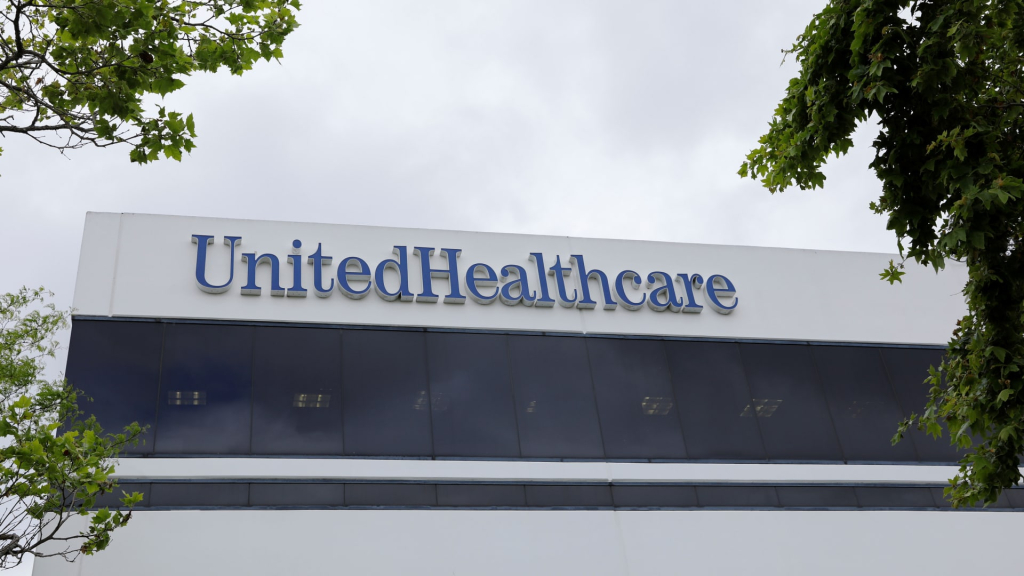Shares of UnitedHealth Group plummeted by 20% on Thursday following the company’s significant downward revision of its annual profit outlook. The health insurance giant attributed this change to unexpectedly high medical costs in its privately managed Medicare plans.
The disappointing financial results from UnitedHealth, regarded as a key indicator within the insurance sector, may raise alarms for other companies offering Medicare Advantage plans, according to analysts on Wall Street. The downturn follows a tumultuous year for health insurers, characterized by reduced government reimbursements and rising medical expenses, compounded by public outrage following the tragic incident involving the murder of UnitedHealthcare’s CEO, Brian Thompson.
As the largest provider of Medicare Advantage plans in the U.S., UnitedHealthcare’s struggles have also impacted its rivals. Shares of Humana fell by 5%, while Elevance Health reported a decline of more than 1%, and CVS saw its stock drop by 2%. Notably, Cigna does not operate in the Medicare Advantage space and instead experienced a stock increase of nearly 1% on the same day.
TD Cowen analyst Ryan Langston remarked that UnitedHealth’s first-quarter results indicate “ominous signs” regarding escalating medical costs in Medicare Advantage. He further noted that UnitedHealth had anticipated these rising costs back in 2023, suggesting that the recent comments could shake the confidence in the full-year predictions for other insurers.
The entire insurance industry has been grappling with elevated medical costs over the past year, especially as more seniors have resumed elective procedures delayed during the COVID-19 pandemic, such as hip and joint replacements. Historically, UnitedHealthcare had not seen such severe issues.
Andrew Mok from Barclays indicated that UnitedHealth’s challenges may be less pertinent for those companies that have significantly reduced their exposure in various Medicare Advantage markets, including Humana and CVS, who exited unprofitable sectors amidst rising medical costs and reduced federal reimbursements.
Conversely, the situation could be more concerning for firms that have gained significant market share in Medicare Advantage, like Elevance Health and Alignment Health, Mok noted.
UnitedHealth’s rising utilization levels in its Medicare Advantage business far exceeded previous expectations, with CEO Andrew Witty clarifying during the earnings call that projected care activity for the year now needed to be revised, as actual usage had doubled compared to expectations.
This surge was particularly pronounced in outpatient services, which typically do not require hospital stays. Bernstein equity analyst Lance Wilkes conveyed surprise over the rising utilization, which comes on the heels of already high care activity levels from the past year.
According to Wilkes, both UnitedHealth and the broader industry might be “pulling back” on their strategies for managing utilization, likely due to increased scrutiny and policy challenges. Insurers often require prior authorization, meaning healthcare providers must obtain consent from the insurance company before proceeding with specific treatments, leading to patient dissatisfaction.
He suggested UnitedHealth’s cautious approach may stem from the recent tragic situation involving Brian Thompson and ongoing Department of Justice investigations regarding its Medicare billing practices.
On the same day, UnitedHealth acknowledged complications relating to the evolving patient demographics served by its Optum healthcare unit, which encompasses its pharmacy benefit manager responsible for negotiating drug rebates and managing formularies.
However, Witty assured stakeholders that the company is implementing measures to improve its performance, viewing the issues tied to Optum and rising medical expenses as manageable as they move toward 2026.
Looking ahead, insurers are anticipated to receive financial support next year, as the Trump administration announced in April an increase in reimbursement rates for Medicare Advantage plans, improving upon a previous proposal made under the Biden administration.


























